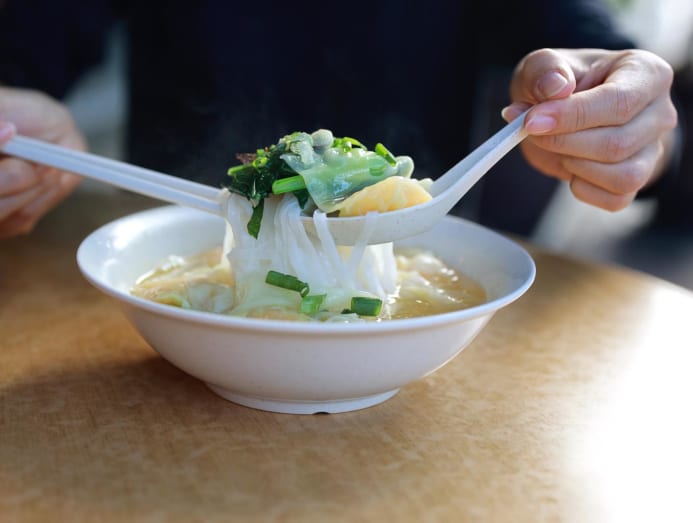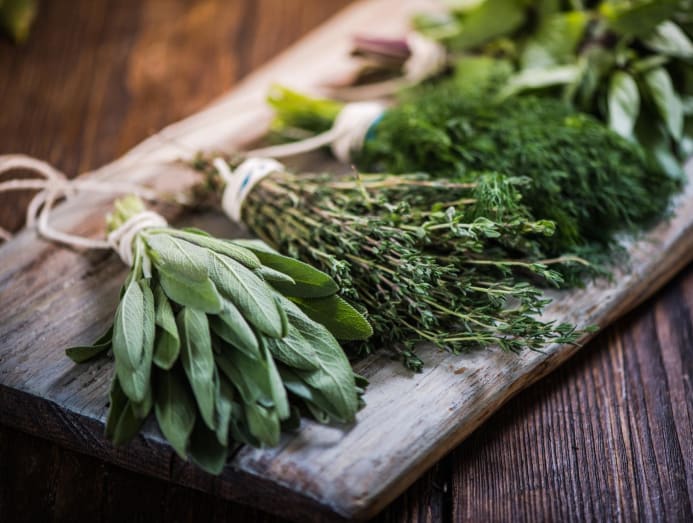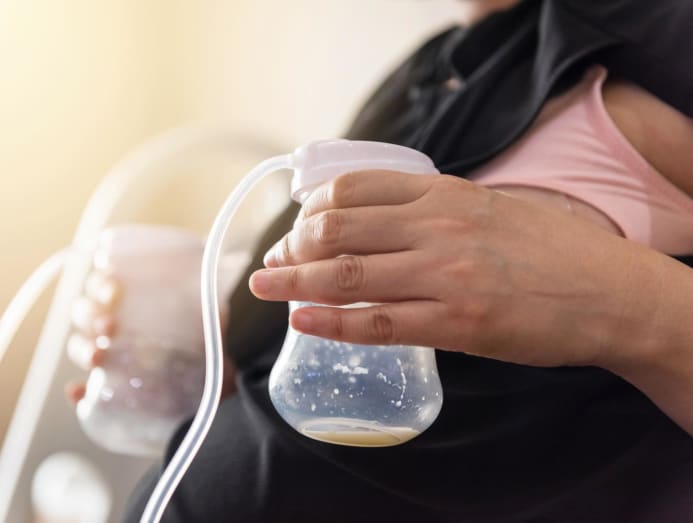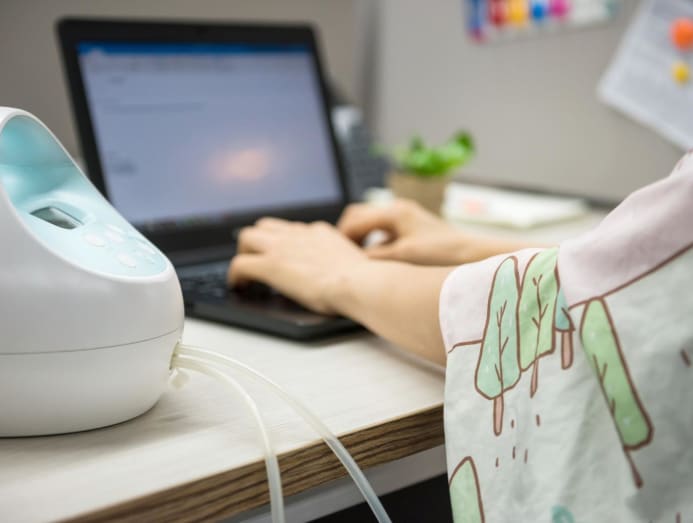Hard work, time, money, worry: Breastfeeding may be best for baby but it’s the mothers who make the sacrifices
Avoiding alcohol, breath mints and medicines, and planning every day around your milk-pumping schedule, and more. The writer, who breastfed her child for three years, sums up the sacrifices of mums who breastfeed in this CNA Women series on breastfeeding. And, she says, it’s okay if you can’t or decide not to breastfeed.

To produce milk for their babies, breastfeeding mothers make many sacrifices, from sticking to a breastfeeding-friendly diet to planning their work day around their pumping schedule. (Photo: iStock/staticnak1983)
When my mother gave birth to my eldest sister in the 1960s, breastfeeding was not in fashion. If you wanted the best for your child, formula milk was what you fed him or her. It was even touted as better than breast milk.
“After I delivered your sister, she was started on formula milk at the hospital. They sent me home with milk samples,” she recalled.
“Being a young first-time mum, I didn’t know much about the benefits of breastfeeding then, so I just went along with it. I had to switch to a cheaper brand though, because we were not well off.”
The rare few mums she knew who were exclusively breastfeeding did so because they could not afford to buy formula milk.
THE GOOD NEWS: MORE MUMS ARE BREASTFEEDING
A national survey showed that in 2021-2022, 97 per cent of Singapore women chose to breastfeed. Among infants up to six months of age, 40 per cent were fed exclusively with breastmilk.
Breast milk may be free but breast pumps and storage bags are expensive.
That’s an amazing figure that women should be proud of. But this is what it also tells us: Almost every mum – 97 per cent – has tried breastfeeding.
This means, to make food for their babies, they put in hard work, time and money; breast milk may be free but breast pumps and storage bags are expensive. Not to mention, the many sacrifices that breastfeeding mums willingly accept to keep their babies well-fed.
HOW BREASTFEEDING IS GOOD FOR YOU AND YOUR BABY
The Ministry of Health recommends that mums breastfeed exclusively for at least six months, to optimise the health and development of the baby. Breastfeeding can, of course, continue beyond six months, along with other foods.
BENEFITS FOR THE BABY
- Breastfeeding decreases the incidence and severity of infections, such as diarrhoea, respiratory tract infection and urinary tract infection
- Infants with a family history of allergy reportedly have significantly lower incidence of allergic disease, if they were exclusively breastfed
BENEFITS FOR THE MOTHER
- Breast and ovarian cancer are less common in women who had previously breastfed
- The longer you breastfeed, the more this protective effect increases
- Breastfeeding helps mums to return to their pre-pregnancy weight more quickly
BREASTFEEDING COMES WITH SACRIFICES
Some might argue that breastfeeding is a natural process of motherhood and thus should not be considered a sacrifice. However, natural doesn’t mean easy.
To make things clear, I’m a big advocate of breastfeeding. I did it for almost three years. And I’d be the first to tell you that breastfeeding absolutely requires sacrifices from the mum.
STICKING TO A STRICT DIET FOR MONTHS, AND SOMETIMES, YEARS
Every breastfeeding mum knows the two Qs of breastfeeding: Quantity and quality. We have this nagging worry: Are we are making enough breast milk to feed our baby? Is it good enough to keep him or her healthy?

We research and eat food known to boost breast milk supply. Papaya and fish soup is a popular one that even fish-hating mums try their best to swallow. Plenty of protein-rich foods like fish, chicken, meat and tofu. Go heavy on green leafy veggies like kale and spinach. Nuts are great too.
You might say that these all point to a healthy diet we should be following, so what’s the sacrifice there?
Let’s talk about the fun food mums give up. That favourite cup of coffee or tea, because caffeine. That glass of wine, because alcohol, and do you want to give your baby health issues?

Like the refreshing taste of peppermint? Eating several mints multiple times a day will make its presence known in a dip in milk supply, though the occasional cup of peppermint tea should not cause a major decrease.
Some mums become hyper-aware of what’s in their food. Sage, for example, is well documented for impacting the milk production process. One friend, who breast-fed all five of her kids, reported an almost instant drop in her breast milk supply whenever she consumed sage.
Other herbs that, if consumed in large quantities, may also lower your breast milk supply include cilantro, spearmint, rosemary, thyme and lemon balm.
Related:
ENGORGED BREASTS AND WORSE, MASTITIS
Engorged breasts are a rite of passage for breastfeeding mums. When the milk ducts are blocked, it may result in mastitis, an inflammation of breast tissue that causes infection, pain, swelling, redness, fever and chills.
If your baby manages to nurse on the infected side and clear the blockage – imagine the pain of having someone suck on your wound – then count yourself lucky. In bad cases, you would need antibiotics to clear up the inflammation. In worse cases, a pocket of pus may form and it will need to be drained.

Meanwhile, the poor mum frets about her reduced milk supply. She will also be kicking herself for not having pumped/fed regularly enough, and allowing her breasts to be so engorged that mastitis developed.
AVOIDING MEDICINE WHEN YOU’RE SICK
Even though some common medicines, like paracetamol and ibuprofen, are considered safe for breastfeeding mums, some mothers prefer to err on the side of caution and choose not to take medication when they’re sick. This can slow down their recovery.

In one case, I learnt of a mother with arthritis who avoided taking her medicine, fearing the adverse effects on her breastfeeding child.
And another mum, battling cancer, could not breastfeed while undergoing chemotherapy. She tried to delay her treatment by a few days, to give her baby that few extra ounces of breast milk.
PLANNING YOUR DAY – AND CAREER – AROUND YOUR BREASTFEEDING SCHEDULE
Every breastfeeding working mum knows the drill. You leave your house with your breast pump, sterilised bottles and ice packs in a chiller bag.
If your office doesn’t have a nursing room, the start of every pumping session throughout your workday will be spent prowling around for an unused meeting room. You’ll be praying hard that whatever room is available comes with a frosted, and not clear, glass door. Sometimes, the storeroom or toilet may be your only option.

Experienced breastfeeding mums learn to plan their daily routine around their pumping schedule. For example, all external meetings to be held in the morning, so that you are back in the office to pump and store your breast milk in the office fridge.
If your job requires you to be frequently out of the office, the stress multiplies. If you drive, you can at least pop into your car for a bit of privacy to express your breast milk. If not, you would be searching for nursing rooms with a power point, or packing extra batteries for your breast pump so that you can use a toilet to clear your breasts.
Then you will store your precious liquid gold with your ice pack and chiller bag, go to your next appointment, and repeat in a few hours – or risk getting your breasts engorged.
All this time you spend on pumping milk means you will: Learn to be extra efficient at work to make up for pumping time, or work overtime to finish your work, or take work home to complete after your baby goes to bed. After you have washed and sterilised all your breast pump paraphernalia, of course.
And tomorrow, it starts all over again.
For some mums, being committed to breastfeeding may even come at the expense of career progression. They may decline opportunities or leadership roles that might add stress to what is already a stressful time.

Some mums even ask not to go on overseas trips, because they don’t want to ‘pump and dump’ their precious breast milk while being away from their baby.
AND YES, SAGGY BREASTS ARE PART OF THE DEAL
Women who aren’t well-endowed in the chest area are often pleasantly surprised when pregnancy and breastfeeding boost their cup size. But after weaning from breastfeeding, the milk ducts will no longer be filled with milk and the breasts will naturally become smaller.
Sometimes, the skin does not tighten in tandem with the new breast size, resulting in saggy breasts.
Every breastfeeding mum will also tell you that the boob-tugging and nipple-biting from their babies is a price they are willing to pay.
Let’s be clear: Breastfeeding is not the only culprit behind saggy breasts. Your age, size of your breasts, posture, whether you wear a bra regularly or the right fitting bra, your diet, even whether you smoke or not – all these can affect skin elasticity at your chest area.
Also, like it or not, everyone’s breasts, no matter if you are an A or D cup, will sag with time.
But every breastfeeding mum will also tell you that the boob-tugging and nipple-biting from their babies is a price they are willing to pay.
HOWEVER, LET’S NOT ROMANTICISE BREASTFEEDING
Breastfeeding is good but what is important is we don’t romanticise the idea of it. Let’s not put stress on those who are unable to, or choose not to, breastfeed.
It could be a health issue. It could be because their schedule doesn’t allow it. They simply don’t have enough breast milk to feed their baby adequately and formula milk is a reliable alternative.
Or, they may not tell you but they are fighting post-partum blues and the last thing they need is to stress over breastfeeding. It’s not fair to expect every mum to suck up the difficulties and inconvenience, and “just cope with it”.
Breastfeeding is a personal and intimate journey that a mother chooses to embark with her child. She is not looking for pats on the back. She is too busy just trying to make things work.
And if she chooses not to do it? That’s her business so keep your nose out of it, thank you.
CNA Women is a section on CNA Lifestyle that seeks to inform, empower and inspire the modern woman. If you have women-related news, issues and ideas to share with us, email CNAWomen [at] mediacorp.com.sg (CNAWomen[at]mediacorp[dot]com[dot]sg).










